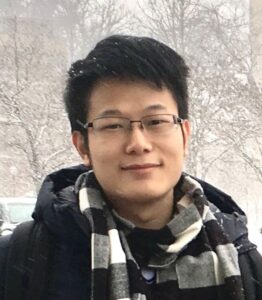
Dr. Xin Chen
Assistant Professor
Energy and Power Group
Department of Electrical and Computer Engineering
Texas A&M University
Email: xin_chen@tamu[dot]edu
Office: WEB 215F
[Google Scholar]

Dr. Xin Chen
Assistant Professor
Energy and Power Group
Department of Electrical and Computer Engineering
Texas A&M University
Email: xin_chen@tamu[dot]edu
Office: WEB 215F
[Google Scholar]
This site has migrated to https://www.xinchen.group. Please check there for the latest updates.
